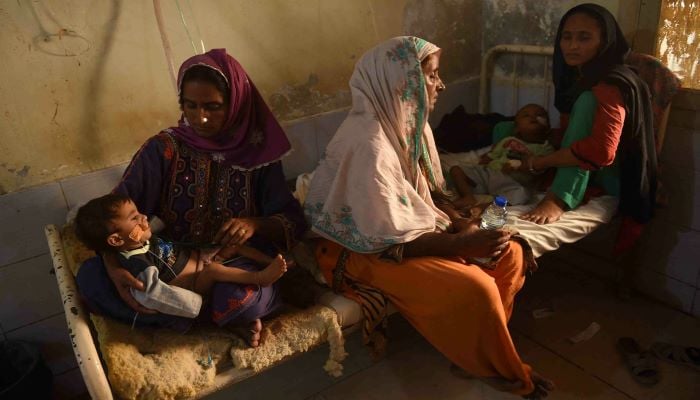[ad_1]
ISLAMABAD: The governments of Sindh and Balochistan have procured hundreds of kilograms of a new biological pesticide made by the Pakistani army to rid the flood-affected areas from danger. mosquitoesFederal health officials said Wednesday.
There is a looming fear of a rising death toll from malaria, dengue fever and other vector-borne diseases in the country flood affected areas.
The biopesticide developed by the Defense Science and Technology Organization (DESTO) of the Pakistan Armed Forces is called Moskil.
An official with the National Health Services, Regulations and Coordination (NHSR&C) said it is being used successfully by Pakistan Army and other armed forces units to eradicate mosquitoes in and around their facilities. news.
The World Health Organization (WHO) has warned about this Widespread disease outbreak Malaria and other vector-borne diseases in 32 flood-stricken districts of Sindh and Baluchistan threaten the lives of thousands, fearing that more than 2.7 million people in these areas will be infected with malaria by January 2023, many of whom could die if not treated.
In order to prevent the deaths, the NHS official said, Sindh and Balochistan had decided to apply the biopesticide Moskil on a trial basis.
Officials in both governments have been trained by military officials to use biochemicals that contain Bacillus thuringeinsis, a bacterium proven to be larvicidal, found naturally in soil.
“Bacillus thuringeinsis is a bacterium that is naturally found in soil and is being successfully used by the United States, Canada, China, India and many other countries in Europe and Africa. DESTO locally developed its product based on Bacillus thuringeinsis Bti-Pk from bacteria obtained from local strains in Pakistan The official added that this product kills mosquito larvae in stagnant water and stops the growth and spread of all kinds of mosquitoes.
According to the official, Moskill is an environmentally friendly product approved by the Medicines Regulatory Authority of Pakistan (DRAP) and the Environmental Protection Agency (EPA), but added that both provincial governments are using the product on a trial basis as they have. This type of method has not been used before for vector control.
On the other hand, a former health care specialist associated with the Pakistani army said that the British Indian army has long experience in dealing with mosquitoes, especially those that spread malaria, and added that in some wars, malaria killed more soldiers than the enemy, which forced the army to devise ways and means To deal with vector-borne diseases.
Malaria and dengue fever pose as serious a public health challenge to the armed forces as to the civilian population. The Pakistan Army uses traditional as well as research-based methods and technologies, including biotechnology-based solutions to deal with mosquitoes and other vector-borne diseases to assist soldiers and their families who have settled in cantonment areas.”
[ad_2]
Source link

